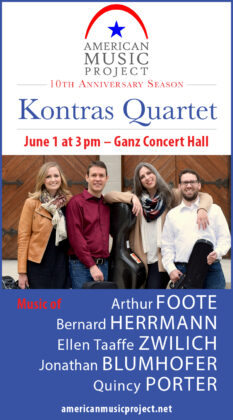Historic interest stronger than humdrum music in Haymarket Opera’s “La liberazione”

You have to say this about La liberazione di Ruggiero dall’isola d’Alcina. You will not hear an older opera nor one with a longer title anytime soon.
Haymarket Opera opened its weekend run of Francesca Caccini’s 1625 opera Friday night at DePaul University’s Jarvis Opera Hall. Yet despite its historic interest as the earliest known opera written by a woman, the slender musical rewards indicate that the composer’s gender is likely the most noteworthy aspect of La liberazione.
The eldest daughter of composer Giulio Caccini, Francesca was born in Florence in 1587 and received a thorough musical education. She was a celebrated singer and musician (playing the lute, guitar and harpsichord), wrote poetry, and was a prolific composer of songs, madrigals, sacred pieces and three larger works that can generously be termed operas (the actual La liberazione score calls it a balletto), of which The Liberation of Ruggiero from the Island of Alcina is the most celebrated. In addition to being the oldest surviving quasi-opera written by a woman, La liberazione appears to have been the first Italian opera performed outside of Italy (presented in Warsaw in 1682).
The fanciful story (libretto by Ferdinando Saracinelli) roughly reflects the same scenario as Handel’s Alcina. The sorceress Alcina lures the solider Ruggiero to her island, where she turns men into plants, rocks and animals. After much expository to-ing and fro-ing and a confrontation between the two characters, the doomed Ruggiero is rescued at the last minute by the sort-of good witch Melissa.
One had high hopes for La liberazione, especially coming after the company’s last offering, Hasse’s richly melodic Marc’Antonio e Cleopatra, which proved a genuine discovery. Unfortunately, at least based on this work, Caccini was no Johann Adolph Hasse.
Granted, opera was in its most nascent form in the early 17th century and one should not expect soaring Puccini-esque arias or blazing Verdian drama from a genre in its infancy.
Even so, the lack of indelible music and the unvaried nature of Caccini’s style quickly palls. The opera is made up almost entirely of acres of earnest declamatory recitative that soon becomes repetitive and tiresome. The final scenes of the opera hold somewhat more compelling music with the confrontation between Ruggiero and Alcina and his rescue engineered by Melissa in the climactic denouement (aided by some welcome if belated stagecraft).
Still, with all the worthy early and Baroque operas out there waiting to be rediscovered, I’m not convinced that La liberazione stands high among them. For most of Friday night’s performance, it felt like one was in a kind of musicological church service, respectfully enduring an extended dull sermon while silently waiting for it to be over. The interval-less 90-minute duration seemed significantly longer than it was.
That was no fault of the production. Haymarket gave Caccini’s work a worthy staging in its usual historically informed tradition with a cast that drew largely on talented company regulars.
Scott J. Brunscheen provided the evening’s finest moments as Ruggiero. His warm, plangent tenor is an instrument of real tonal beauty and Brunscheen’s superb, stylish singing and assured stage presence elevated the proceedings in every scene.
Sophie Michaux was an able Alcina, singing with a mostly polished mezzo-soprano and acting competently. Still, for such a flamboyant charceter as the man-killing sorceress, one wanted much greater fire and charisma than was offered in her pallid characterization.

In this mezzo-rich environment, Lindsay Metzger’s dusky voice provided consistent vocal pleasure as Melissa, as well as amusement in her masquerade as Atlante, Ruggiero’s elderly male tutor.
Showing versatility in smaller roles and comprising the excellent chorus were sopranos Nathalie Colas and Hannah De Priest, mezzos Quinn Middleman and Michelle Mariposa, tenors Michael St. Peter and Justin Berkowitz, baritone Schyler Vargas and bass-baritone Dorian McCal. One waits for the characterful, big-voiced McCal to get a larger Haymarket assignment someday.
The small-scale unit set by Wendy Waszut-Barrett offered a stage-within-a-stage theater on a raised platform; waves and the fiery final scene provided quaint period stagecraft. Sarah Edgar directed an efficient, flowing performance in the company’s historically faithful manner, though some of the wrist-flicking and Magic Hands gestures drew undue attention to themselves.
Craig Trompeter led a focused, well-balanced performance and kept the opera on track, albeit without making a convincing case for the piece as a whole. (The repeated bird-call sounds were overdone and decidedly twee.) Four sackbuts in the orchestra added elegant ballast, with the Newberry Consort’s Liza Malamut among the players.
La liberazione di Ruggiero dall’isola d’Alcina will be repeated 7:30 p.m. Saturday and 3 p.m. Sunday. haymarketopera.org
Posted in Performances




